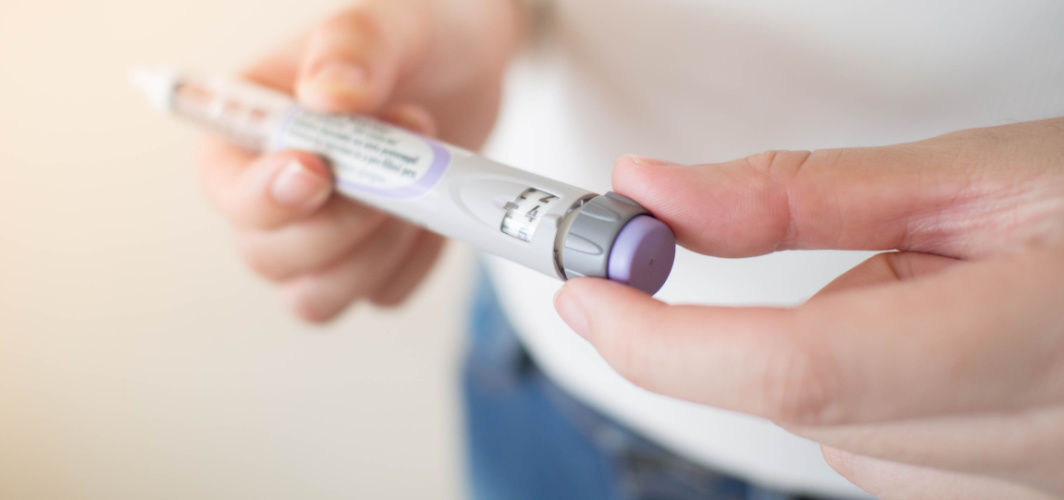Diabetes Management
What is the Difference between Diabetes Insipidus and Diabetes Mellitus?
2 min read
By Apollo 24|7, Published on - 12 September 2023, Updated on - 14 September 2023
Share this article
0
0 like
_0.jpg?tr=q-80)
Unlike popular belief, diabetes insipidus is not just another type of diabetes. Other than having the same first name and some of the common symptoms, diabetes insipidus, and diabetes mellitus are completely different from each other in terms of causes, effects on the body, and treatments.
Diabetes Mellitus
Diabetes mellitus is a chronic disease that affects the body's ability to produce or use insulin. There are several subtypes of diabetes mellitus, with type 1 and type 2 being the most common.
Type 1 Diabetes: It is an autoimmune disease where the immune system mistakenly attacks and destroys insulin-producing beta cells in the pancreas. As a result, people with type 1 diabetes require insulin injections or an insulin pump to regulate their blood sugar levels.
Type 2 Diabetes: This is a metabolic disorder characterized by insulin resistance, where the body's cells don't respond effectively to insulin. It is often associated with lifestyle factors like obesity and physical inactivity, although genetics also play a role. Type 2 diabetes can typically be managed with lifestyle changes, oral medications, and in some cases, insulin.
Diabetes Insipidus
Diabetes insipidus, on the other hand, is a rare condition that has nothing to do with blood sugar levels. It affects the body's ability to regulate water balance, leading to excessive thirst and urination. There are several types of diabetes insipidus, but the most common is called central diabetes insipidus, which is caused by a deficiency of vasopressin, a hormone that helps the kidneys reabsorb water.
Impact, Causes & Treatment
|
Diabetes Mellitus |
Diabetes Insipidus |
|
|
Impact on the body |
Affects blood sugar regulation |
Affects water balance |
|
Cause |
Body’s inability to produce or utilise insulin |
Issue with making or using vasopressin (or antidiuretic hormone) |
|
Treatment |
medication, diet, and lifestyle changes |
Medications that mimic the action of vasopressin |
Conclusion
Understanding these differences is crucial for accurate diagnosis and effective management. If you or someone you know is experiencing symptoms related to diabetes, it's essential to consult a healthcare professional for a proper evaluation and personalized treatment plan.
Diabetes Management
Leave Comment
Recommended for you

Diabetes Management
Eggplants and Diabetes: A Healthy Addition to Your Diet
Eggplants can be a healthy addition to the diet of individuals with diabetes. Low in calories and carbohydrates, they offer various benefits, including blood sugar regulation due to their fiber content and antioxidant properties. Eggplants also support heart health and weight management. To incorporate them into your diabetes-friendly diet, try grilled or roasted eggplant in salads, hearty stews, or stuffed eggplant dishes. However, it's essential to practice portion control and consult with a healthcare provider or dietitian to personalize your dietary plan.

Diabetes Management
What Is Insulin? Answering The Top 5 Frequently Asked Questions
The different types of insulin available for diabetes management are rapid-acting insulin which works quickly and short-acting insulin which is taken before meals to control blood sugar levels. Intermediate-acting insulin has a prolonged effect and is taken twice a day for basal insulin coverage during fasting periods while long-acting insulin provides a steady release of basal insulin for 24 hours to maintain stable blood sugar levels, and pre-mixed insulin that combines short-acting and intermediate-acting insulin.

Diabetes Management
Glycemic Index for Diabetes Management: Why it is Useful
The glycemic index (GI) ranks foods based on their impact on blood sugar levels. It helps individuals with diabetes make informed food choices, focusing on foods with a lower glycemic index to maintain stable blood sugar levels and overall better glycemic control.
Subscribe
Sign up for our free Health Library Daily Newsletter
Get doctor-approved health tips, news, and more.
Visual Stories

8 Fruits That are Incredibly Healthy for Diabetes
Tap to continue exploring
Recommended for you

Diabetes Management
Eggplants and Diabetes: A Healthy Addition to Your Diet
Eggplants can be a healthy addition to the diet of individuals with diabetes. Low in calories and carbohydrates, they offer various benefits, including blood sugar regulation due to their fiber content and antioxidant properties. Eggplants also support heart health and weight management. To incorporate them into your diabetes-friendly diet, try grilled or roasted eggplant in salads, hearty stews, or stuffed eggplant dishes. However, it's essential to practice portion control and consult with a healthcare provider or dietitian to personalize your dietary plan.

Diabetes Management
What Is Insulin? Answering The Top 5 Frequently Asked Questions
The different types of insulin available for diabetes management are rapid-acting insulin which works quickly and short-acting insulin which is taken before meals to control blood sugar levels. Intermediate-acting insulin has a prolonged effect and is taken twice a day for basal insulin coverage during fasting periods while long-acting insulin provides a steady release of basal insulin for 24 hours to maintain stable blood sugar levels, and pre-mixed insulin that combines short-acting and intermediate-acting insulin.

Diabetes Management
Glycemic Index for Diabetes Management: Why it is Useful
The glycemic index (GI) ranks foods based on their impact on blood sugar levels. It helps individuals with diabetes make informed food choices, focusing on foods with a lower glycemic index to maintain stable blood sugar levels and overall better glycemic control.